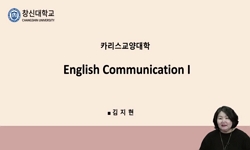Purpose: During medical residency programs, physicians develop their professional identities as specialists and encounter high expectations in terms of achieving competencies. The responsibilities of medical trainees include caring for patients, balan...
http://chineseinput.net/에서 pinyin(병음)방식으로 중국어를 변환할 수 있습니다.
변환된 중국어를 복사하여 사용하시면 됩니다.
- 中文 을 입력하시려면 zhongwen을 입력하시고 space를누르시면됩니다.
- 北京 을 입력하시려면 beijing을 입력하시고 space를 누르시면 됩니다.


Trainees’ perceptions and expectations of formal academic mentoring during the COVID-19 pandemic in Indonesian cardiology residency programs
한글로보기https://www.riss.kr/link?id=A108138604
-
저자
Sunu Budhi Raharjo (Universitas Indonesia) ; Rita Mustika (Universitas Indonesia) ; Aida Lydia (Universitas Indonesia) ; Mefri Yanni (Andalas University) ; Heru Sulastomo (Sebelas Maret University) ; Rahma Tsania Zhuhra (Universitas Indonesia) ; Celly Anantaria Atmadikoesoemah (Universitas Indonesia)
- 발행기관
- 학술지명
- 권호사항
-
발행연도
2021
-
작성언어
English
- 주제어
-
등재정보
KCI등재,SCOPUS,ESCI
-
자료형태
학술저널
-
수록면
1-7(7쪽)
-
KCI 피인용횟수
0
- DOI식별코드
- 제공처
-
0
상세조회 -
0
다운로드
부가정보
다국어 초록 (Multilingual Abstract)
Purpose: During medical residency programs, physicians develop their professional identities as specialists and encounter high expectations in terms of achieving competencies. The responsibilities of medical trainees include caring for patients, balancing work with personal life, and weathering stress, depression, and burnout. Formal academic mentoring programs strive to ease these burdens. The coronavirus disease 2019 (COVID-19) pandemic has altered the trainee–academic mentor relationship, and solutions are needed to address these challenges. The present study aimed to evaluate the formal academic mentoring process through trainees’ perceptions and expectations of formal mentoring programs during COVID-19 in Indonesian cardiology residency programs.
Methods: This cross-sectional study used a self-administered online questionnaire to capture trainees’ perceptions and expectations regarding academic mentoring programs in 3 cardiology residency programs in Indonesia from October to November 2020. The questionnaire was developed before data collection. Perceptions of the existing mentoring programs were compared with expectations.
Results: Responses were gathered from 169 out of 174 residents (response rate, 97.3%). Most trainees reported having direct contact with COVID-19 patients (88.82%). They stated that changes had taken place in the mode and frequency of communication with their academic advisors during the pandemic. Significant differences were found between trainees’ perceptions of the existing mentoring programs and their expectations for academic mentoring programs (P<0.001).
Conclusion: Despite the challenges of interacting with their academic mentors, trainees still perceived academic mentors as a vital resource. Study programs need to consider trainees’ expectations when designing academic mentoring programs.
참고문헌 (Reference)
1 Vandenbroucke JP, "Strengthening the Reporting of Observational Studies in Epidemiology (STROBE): explanation and elaboration" 4 : e297-, 2007
2 Sanfey H, "Strategies for building an effective mentoring relationship" 206 : 714-718, 2013
3 Palamara K, "Promoting success : a professional development coaching program for interns in medicine" 7 : 630-637, 2015
4 Farkas AH, "Mentorship of US medical students : a systematic review" 34 : 2602-2609, 2019
5 Termini CM, "Mentoring during uncertain times" 46 : 345-348, 2021
6 Andrades M, "Effectiveness of a formal mentorship program in family medicine residency : the residents’ perspective" 2013 : 520109-, 2013
7 Artino AR Jr, "Developing questionnaires for educational research: AMEE guide no. 87" 36 : 463-474, 2014
8 Yadav A, "Cardiology training in times of COVID-19 : beyond the present" 72 : 321-324, 2020
9 Hadley MB, "Cardiology fellowship during the COVID-19 pandemic : lessons from New York city" 76 : 878-882, 2020
10 Davis OC, "A proposed model for an optimal mentoring environment for medical residents : a literature review" 85 : 1060-1066, 2010
1 Vandenbroucke JP, "Strengthening the Reporting of Observational Studies in Epidemiology (STROBE): explanation and elaboration" 4 : e297-, 2007
2 Sanfey H, "Strategies for building an effective mentoring relationship" 206 : 714-718, 2013
3 Palamara K, "Promoting success : a professional development coaching program for interns in medicine" 7 : 630-637, 2015
4 Farkas AH, "Mentorship of US medical students : a systematic review" 34 : 2602-2609, 2019
5 Termini CM, "Mentoring during uncertain times" 46 : 345-348, 2021
6 Andrades M, "Effectiveness of a formal mentorship program in family medicine residency : the residents’ perspective" 2013 : 520109-, 2013
7 Artino AR Jr, "Developing questionnaires for educational research: AMEE guide no. 87" 36 : 463-474, 2014
8 Yadav A, "Cardiology training in times of COVID-19 : beyond the present" 72 : 321-324, 2020
9 Hadley MB, "Cardiology fellowship during the COVID-19 pandemic : lessons from New York city" 76 : 878-882, 2020
10 Davis OC, "A proposed model for an optimal mentoring environment for medical residents : a literature review" 85 : 1060-1066, 2010
11 Chun JU, "A longitudinal study of mentor and protégé outcomes in formal mentoring relationships" 33 : 1071-1094, 2012
동일학술지(권/호) 다른 논문
-
- 한국보건의료인국가시험원
- 이윤성
- 2021
- KCI등재,SCOPUS,ESCI
-
- 한국보건의료인국가시험원
- Young Chang Kim
- 2021
- KCI등재,SCOPUS,ESCI
-
- 한국보건의료인국가시험원
- Elio Arruzza
- 2021
- KCI등재,SCOPUS,ESCI
-
- 한국보건의료인국가시험원
- 정진우
- 2021
- KCI등재,SCOPUS,ESCI
분석정보
인용정보 인용지수 설명보기
학술지 이력
| 연월일 | 이력구분 | 이력상세 | 등재구분 |
|---|---|---|---|
| 2023 | 평가예정 | 해외DB학술지평가 신청대상 (해외등재 학술지 평가) | |
| 2020-01-01 | 평가 | 등재학술지 유지 (해외등재 학술지 평가) |  |
| 2019-04-01 | 평가 | SCOPUS 등재 (기타) |  |
연관 공개강의(KOCW)
-

Communication: Early Language
Teachers TV Teachers TV -

Mentoring and CPD
Teachers TV Teachers TV -

Developing Communication for Language and Thinking
Teachers TV Teachers TV -

English Communication I
창신대학교 김지현 -

How to Improve Your English Communication Skills: Speaking, Vocabulary and Grammar
한서대학교 Shaneil Dipasupil




 KCI
KCI

